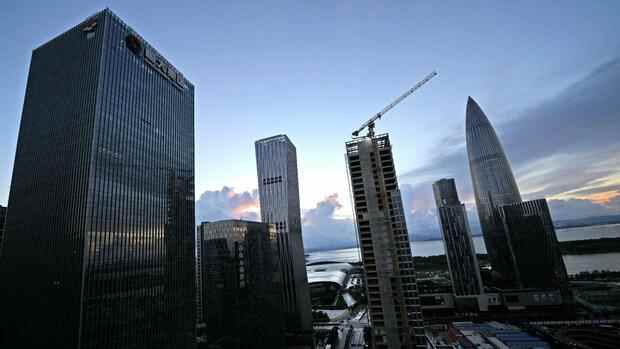In its latest stability report, the US Federal Reserve warns of the risk of contagion for the global financial markets from the problems in the Chinese real estate sector.
(Photo: AP)
The fact that the Chinese real estate market and the companies involved in it are not doing well is nothing new. But how big are the problems really? Is the turbulence limited to the domestic market and is it having an indirect effect on the West through lower Chinese growth rates? Or is there a more direct risk of contagion from global financial markets?
In the arch-capitalist banking strongholds of New York, Frankfurt or London, there is still a remarkable basic trust in the crisis management of the communist elite of the People’s Republic. But after the turmoil of the past few weeks, it seems that the upheaval is beginning to take hold that real estate developers like Evergrande are symptoms of more serious problems.
This diagnosis is supported by the latest stability report by the US Federal Reserve, which explicitly warns of global risks from local stress in China. A look at the numbers provides further arguments for the thesis that the risk of infection from China should not be underestimated.
It’s no longer just about Evergrande. With Fantasia, Sinic and China Properties, three other real estate developers are having acute difficulties servicing their debts. Just recently, another company, Kaisa, had to ask investors to be patient because of payment problems. According to calculations by the banking house Nomura, the total debts of the Chinese real estate companies add up to over five trillion dollars, which is almost the size of the Japanese economy.
Top jobs of the day
Find the best jobs now and
be notified by email.
The government in Beijing would have the necessary instruments and resources to prop up the crisis industry and reassure investors. But so far the markets have been waiting in vain for decisive interventions, such as lowering the minimum reserve requirements for banks or other serious easing of financing conditions.
This shows that President Xi Jinping is serious about trying to combat the economic excesses of the past and discipline domestic markets.
But this is a delicate balancing act that can go wrong very quickly. This is shown by the example of Lehman Brothers. The attempt by the US government in 2008 to set an example for the entire financial sector and to let the badly ailing investment bank go bankrupt had one or the other unpleasant side effect.
Evergrande is not Lehman Brothers – and the Chinese financial market is still largely sealed off internationally. But the risks are getting bigger.
More: The Evergrande case is also a lesson for investors
